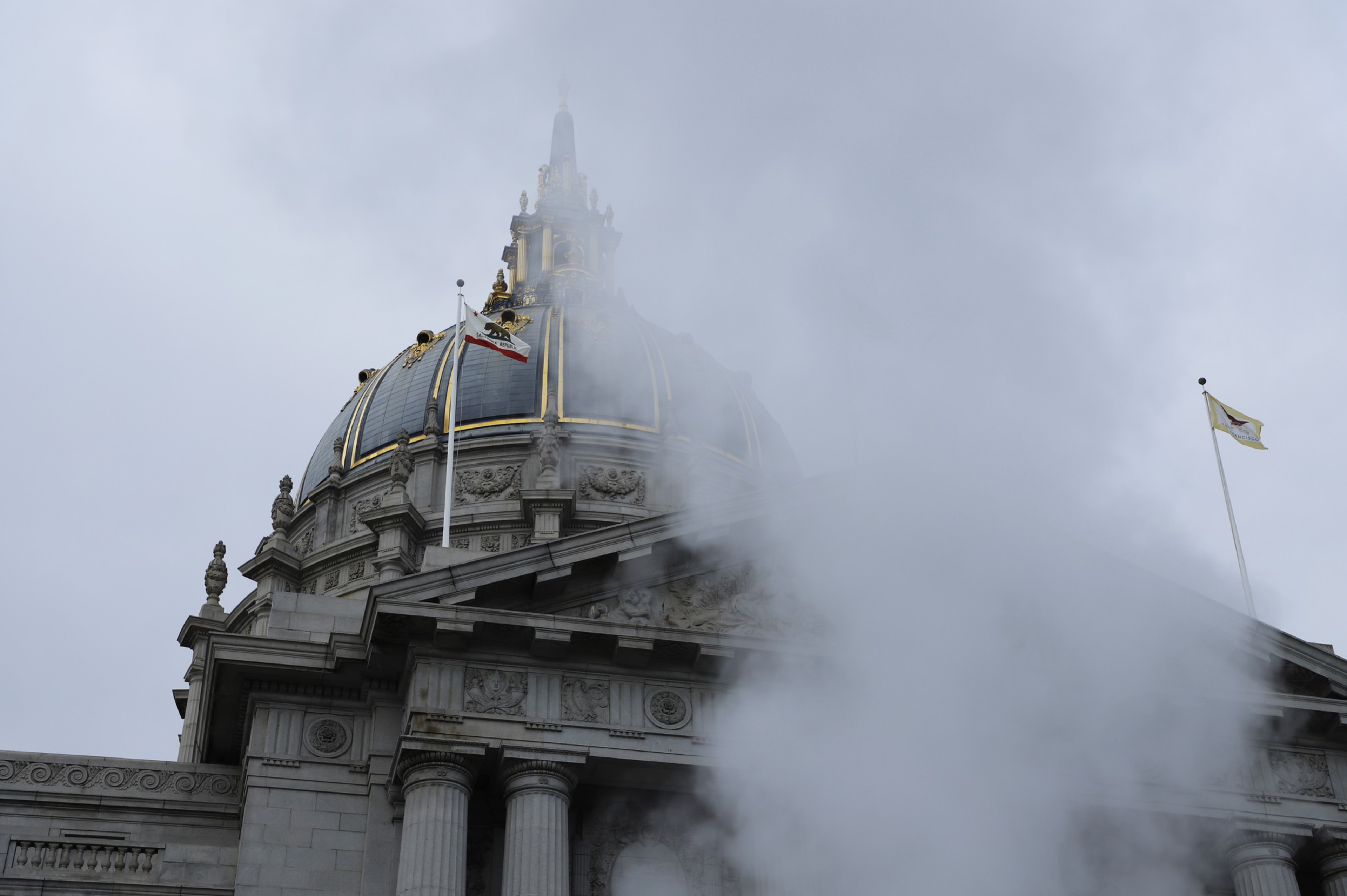Corrupt officials may garner more scrutiny under Proposition C, which would create a new inspector general position to investigate City Hall misdeeds.
Prop. C was leading by a wide margin in early returns, suggesting that San Francisco voters like the idea of a dedicated watchdog.
City Hall is in dire need of extra hands to dig up all its dirt, the measure’s (opens in new tab) proponents say.
In 2020, former Public Works director Mohammed Nuru was indicted by the U.S. Department of Justice in a wide-ranging bribery scandal. Nuru later pleaded guilty, but by the time he did, more department heads and city staffers were charged or implicated: former San Francisco Public Utilities manager Harlan Kelly, former Department of Building Inspection director Tom Hui, and a bevy of staffers and city contractors.
In the wake of the scandal, city officials were left wondering: Why did it take an FBI investigation to root out the corruption?
Multiple local agencies are already tasked with investigating corruption: the City Attorney’s Office, the District Attorney’s Office, and the Ethics Commission, among others.
Proposition C’s principal officer, Ed Harrington, is a former city controller and former manager of the Public Utilities Commission (PUC). Harrington said San Francisco’s investigative arms are set up to stamp out corruption after the fact, rather than prevent it.
“The current way we do business is almost always reactive,” Harrington said. “There’s no proactive way for someone to say, ‘Something odd is happening here.’”
Harrington points to an example from his tenure at the PUC. A crew of city electricians on Treasure Island were fraudulently billing for personal purchases (opens in new tab) like BMW tires and lease payments on a truck. They allegedly hired prostitutes and took them back to their worksite. Harrington said he approached the District Attorney’s office to investigate, but they wouldn’t lift a finger.
“They were running a whole scam over there. The DA didn’t do anything for three years,” Harrington said. “We had to do all the paperwork and bring it to them.”
Under Prop. C, an inspector general would be empowered to issue subpoenas and investigate suspected fraud, waste, or abuse. The inspector general would have the power to dig through records of city agencies, permittees, contractors — like the ones who bribed Nuru — and lobbyists.
The inspector general would be housed under the city controller’s office, where they could share some staff as a cost-saving measure. The inspector general may cost the city as much as $775,000 annually, according to the controller.
The measure’s opponents mostly disagreed with two elements of the proposal: Firstly, that it is duplicative of existing government agencies (opens in new tab), and secondly, that it may be a vehicle to promote Board of Supervisors President Aaron Peskin’s mayoral candidacy. He has publicly argued the ballot measure is a demonstration of his commitment to ethics in government.
The measure was authored by Peskin and placed on the ballot by the Board of Supervisors after a unanimous vote.
The chief opponents to the inspector general position are Republicans, including Jay Donde, president of the Briones Society, a moderate-leaning Republican group. Donde said he thinks the way the inspector general would be hired is problematic: The controller would appoint an inspector general; the mayor and Board of Supervisors would have to confirm that appointment.
Donde thinks the inspector general should be an elected position.
“If you look at any other jurisdiction,” Donde said, “the person that has this responsibility is independent.”
Proposition C’s proponents believe that housing the inspector general in the controller’s office helps to shield it from political meddling. The city controller is appointed to 10-year terms, insulating them from the rocky waters of politics. And controller’s office funding is enshrined in the city charter, meaning an irate mayor or Board of Supervisors couldn’t cut money from an inspector general if they disagreed with an investigation.
Harrington said allowing the mayor and Board of Supervisors to confirm the inspector general will instill confidence in the appointee and protect them from political disruptions.
“Is that the right level of independence?” Harrington said. “There’s no perfect way. But this is the best you could get.”
